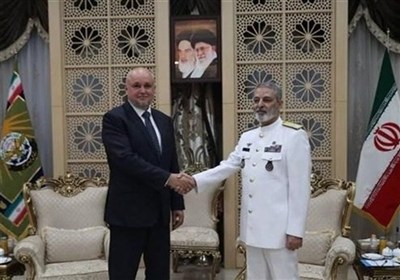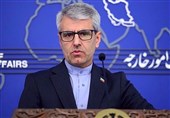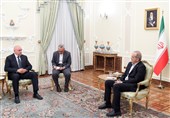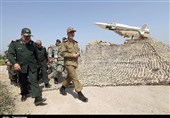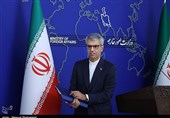Targeted Assassinations Amount to State-Sponsored Israeli Terrorism: Analyst
TEHRAN (Tasnim) – An Italian political analyst denounced the Israeli regime’s systematic use of targeted killings as egregious proof of state-sponsored terrorism.
Giulio Chinappi, an Italian political writer and analyst, said the Zionist regime is systematically using targeted assassinations, collective punishment, and military aggression to suppress resistance and assert total dominance across the region.
The following is the full text of an interview with the Italian researcher.
Q: These days, the world is witnessing blatant acts of aggression by the Israeli regime against Iran and its people. In your view, why does this regime commit such crimes against defenseless civilians in Gaza, Lebanon, and Iran? What drives it to continue these aggressions, including targeted assassinations?
Chinappi: In recent days, the world has witnessed more than ever brazen provocations and acts of aggression by the Zionist regime against Iran and its people. Behind these criminal operations --manifested in indiscriminate bombings of Gaza, repeated raids on Lebanon, and now strikes against Iran-- there lies no genuine concern for the “security” or “defense” chanted by Israeli propaganda. Rather, it is a project of domination and terror. The political oligarchy in Tel Aviv, backed by Washington, views Arab and even Persian peoples as obstacles to be eliminated, keeping alive the rhetoric of an “existential threat” in order to justify its own military expansion. Targeted assassinations of commanders and Iranian scientists fit this logic: they inflict psychological and logistical blows on the enemy, sow fear among the population, and weaken internal political resistance.
Q: The Israeli regime claims to be targeting Iran’s nuclear and missile programs, yet it clearly strikes hospitals, infrastructure, and media institutions, with many of the victims being women and children. How can this contradiction be explained? What is the real objective behind these actions?
Chinappi: When the Tel Aviv regime claims it is striking Iran’s “nuclear and missile programs,” it does so knowing these pretexts cannot withstand international proof --there are no Iranian sites genuinely dedicated to building atomic weapons, as the IAEA has repeatedly certified. The real victims, instead, are women, children, medical staff, patients, and journalists: hospitals blown up, pediatric wards reduced to rubble, power plants and communication networks annihilated. This stark contradiction between official rhetoric and on-the-ground reality reveals the true objective of Israel’s actions: not to halt a non-existent nuclear threat, but to collectively punish Arab and Persian populations in order to cement regional hegemony and enforce a permanent apartheid regime.
Q: Although the UN and many human rights organizations have documented the war crimes of the Israeli regime, Western governments continue to support it militarily and politically. Why do you think Western countries largely remain silent in the face of these crimes?
Chinappi: Although UN bodies, Human Rights Watch, and other organizations have documented in exhaustive detail the war crimes committed by Tel Aviv, Western governments largely remain complicit, providing arms, diplomatic cover, and political backing at the United Nations. This silence --tantamount to consent-- stems from economic and strategic interests. The US and European defense industries rake in enormous profits selling jets, missiles, and ammunition, while geopolitically, Israel serves as Washington’s preferred instrument for suppressing any regional autonomy --be it Palestinian, Lebanese, or Iranian. Thus, the rhetoric of “democratic values” and “human rights” gives way to naked realpolitik.
Q: Western media often portray the Israeli regime as acting in 'self-defense,' while ignoring its massacres of civilians in Gaza, Lebanon, and Iran, as well as its assassination campaigns. How do you interpret this media bias, and what can be done to counter it?
Chinappi: Major Western media outlets --BBC, CNN, The New York Times, Le Monde, The Guardian--routinely cast Israel as acting in “self-defense,” repeating the mantra without question while ignoring massacres of civilians in Gaza, Lebanon, and Iran and the regime’s assassination campaigns. The result is a misinformed public that has no sense of the true scale of Zionist crimes. To counter this bias, we must promote independent media, amplify the voices of on-the-ground freelancers, rapidly translate and disseminate eyewitness reports, and harness social platforms to break the narrative monopoly of media conglomerates.
Q: What do you believe is the long-term goal of the Zionist regime’s aggressive and expansionist policies? What threats do these ambitions pose to its neighbors in the Middle East?
Chinappi: The Zionist regime’s aggressive, expansionist policies are not aimed at “peace” or “mutual recognition,” but at total regional dominance: from annexing Jerusalem and the West Bank to de facto control of Gaza, to neutralizing Iran and its allies. This neo-imperial vision threatens the stability of neighboring states --Lebanon, Syria, Iraq, and Turkey face ever-increasing risks of direct confrontation and proxy wars. Israel’s long-term goals include control of vital water and energy resources, the erasure of any Palestinian or Persian national identity, and the diplomatic isolation of all Islamist or nationalist resistance movements.
Q: What is your personal reaction to the recent attacks by this regime against Iran and the killing of civilians? What message would you like to share?
Chinappi: My personal reaction to the recent attacks on Iran and the killing of civilians is one of profound outrage and sorrow. Knowing that innocent civilians --women, the elderly, and children-- pay with their lives for these criminal political choices fills me with grief. My thoughts are with them and all the victims. My message is this: military force can never erase the pride of a people defending their freedom and sovereignty. I urge honest governments, international civil society, and all conscientious individuals to mobilize to stop this madness, tear down the wall of silence, and impose targeted sanctions on those responsible. Until justice is achieved for the Iranian people --and for Palestinians and Lebanese as well-- there can be no real peace in the Middle East nor security for the rest of the world.
Q: The United States routinely vetoes UN resolutions condemning the Israeli regime's crimes. In your opinion, do US policies enable and sustain these aggressions? How can both regimes be held accountable?
Chinappi: Undoubtedly, US vetoes of UN resolutions denouncing Israeli atrocities serve as a lifeline to a regime that operates above the law. By shielding Tel Aviv from even symbolic international censure, Washington effectively green-lights further aggression. US policy not only sustains Israel’s genocidal campaign in Gaza but now extends to bombing Iran’s sovereign territory without repercussions. To break this impunity, both regimes must face independent international scrutiny: the UN Security Council should refer their leaders to the International Criminal Court, and the General Assembly must create ad hoc tribunals. Simultaneously, Western states that enable these crimes --through arms sales, diplomatic cover, or veto power-- should themselves be subject to global sanctions and a formal inquiry for complicity in war crimes.
Q: The Israeli regime often claims to be targeting military sites, but in practice, civilian areas are hit. This is evident in Gaza, where the high number of child victims and disabled survivors speaks for itself. Similarly, in its recent attacks on Iran, many of the victims have been women, children, and civilians. What do you think is Israel's real motive behind targeting civilians in this way?
Chinappi: The deliberate targeting of civilians reveals the Zionist regime’s true objective: to terrorize and demoralize entire populations, not merely to degrade “military capabilities.” In Gaza, hospitals, schools, and refugee camps have been pulverized, leaving children scarred or orphaned. In Iran, the recent raids on urban neighborhoods and media offices, with women and children among the dead, expose a strategy of collective punishment designed to deter any resistance. This strategy hinges on sowing maximum fear, shattering social cohesion, and asserting total domination. It is state-sponsored terror, pure and simple—far removed from any genuine military necessity.
Q: Protests against the Zionist regime's crimes are growing worldwide. How can this global solidarity be transformed into effective political and economic pressure?
Chinappi: The groundswell of protests --from London to New Delhi, from Buenos Aires to Johannesburg-- demonstrates that public outrage transcends borders. To convert this moral solidarity into tangible pressure, activists and civil society must demand that their governments impose targeted sanctions on Israeli and US military corporations, freeze assets of key political figures, and suspend all trade and military cooperation. Divestment campaigns should target pension funds, banks, and universities complicit in funding the genocide. Moreover, UN member states should be lobbied to downgrade or sever diplomatic ties with Israel and to condemn U.S. vetoes in every available forum.
Q: Many believe that the leaders of the Israeli regime should be tried in international courts, such as the Hague, for war crimes and acts of terrorism. Why has there been no serious action taken in this regard so far?
Chinappi: The absence of serious legal action against Israeli leaders --despite mountains of evidence--stems from geopolitical double standards. Israel, protected by its superpower patron, enjoys de facto immunity from the rule of law. Calls to bring Netanyahu, Katz, or Eisenkot before The Hague are repeatedly stifled by Western influence at the ICC and UNSC. To break this deadlock, the international community must pursue universal jurisdiction: national courts in Europe, Latin America, or Africa can indict those responsible for war crimes and issue arrest warrants. Civil society should press domestic judiciaries to act, thereby bypassing the paralysis of politicized international institutions.
Q: For over seven decades, the Israeli regime and its intelligence agencies have used targeted assassinations of political and military figures—especially among critics and opponents—as a strategic tool. Why does this regime rely so heavily on assassination? How do you view this state-sponsored terrorism?
Chinappi: Assassination has long been a strategic lynchpin of Zionist statecraft: from the days of the pre-1948 militias to the modern Mossad and IDF special forces. By eliminating critics and perceived “enemies,” Israel seeks to preempt any challenge to its geopolitical ambitions. This systematic use of targeted killing—whether of Palestinian leaders, Lebanese commanders, or Iranian scientists—amounts to state-sponsored terrorism. It undermines every principle of sovereignty and due process. We must call it by its name: extrajudicial execution. Only by exposing these acts for what they are can we mobilize legal mechanisms—universal jurisdiction trials, Interpol notices, and war-crime indictments—to end this reign of terror.
Q: The Israeli regime possesses illegal nuclear weapons without any IAEA oversight, yet it attacks Iran under the pretext of nuclear concerns. Isn’t this a clear example of double standards in global norms? How should the international community address this hypocrisy?
Chinappi: The hypocrisy could not be clearer: Israel sits atop a clandestine nuclear arsenal, defying the Non-Proliferation Treaty and evading any IAEA inspection, yet it bombards Iran under the pretext of preventing an “imaginary” Iranian bomb. This double standard betrays a global order rigged in favor of the powerful. The international community must reject this selective enforcement: bolster the IAEA’s mandate to inspect all nuclear-armed states, demand transparency from Israel, and treat any nuclear-armed state that refuses oversight as a pariah. Only by universalizing the rules—no exceptions—can we restore credibility to the norms that safeguard us all.
Q: What are the implications of the recent U.S. attack on Iran’s nuclear facilities for international order, the credibility of the IAEA, and the future of regional stability?
Chinappi: The recent American bombardment of Iran’s nuclear sites represents a dangerous escalation that flagrantly violates international law and the sovereignty of a United Nations member state. By joining Israel’s unilateral campaign to obliterate Fordow, Natanz and Isfahan, the United States has abandoned any pretense of diplomacy and reaffirmed its willingness to wage war under the guise of counter-proliferation. This action not only undermines the authority of the IAEA—whose inspectors had found no evidence of an imminent Iranian weapons program—but also sets a precedent that the strongest military power may bomb any country it deems a “threat,” irrespective of legal or moral constraint.
The claim that these strikes were “very successful” and that Iran must “make peace” or face yet greater attacks is nothing more than a thinly veiled ultimatum: submit to U.S. and Israeli dictates or be destroyed. Such coercion destroys any prospect for genuine negotiation, drives Tehran to harden its stance, and risks triggering an even wider conflict across the Middle East.
Moreover, those who launched bunker-buster bombs into civilian areas must answer for the inevitable harm to noncombatants. Hospitals, schools and residential neighborhoods cannot be collateral damage when a state wields the most powerful ordinance on the planet. The fact that Western governments—including key U.S. allies—remain silent or supportive only compounds the crime, revealing the complicity of those who profess respect for human rights yet bankroll and sanction these atrocities.
In striking Iran’s nuclear facilities, the United States has not strengthened global non-proliferation; it has shattered the norms that protect us all. True security will never be achieved through bombardment and intimidation, but only through transparent, verifiable agreements enforced impartially and enforced by collective institutions, not by bomber wings operating above the rule of law.


